Monthly Journal
July 2023
International Press Review
The most relevant events of the area through international sources
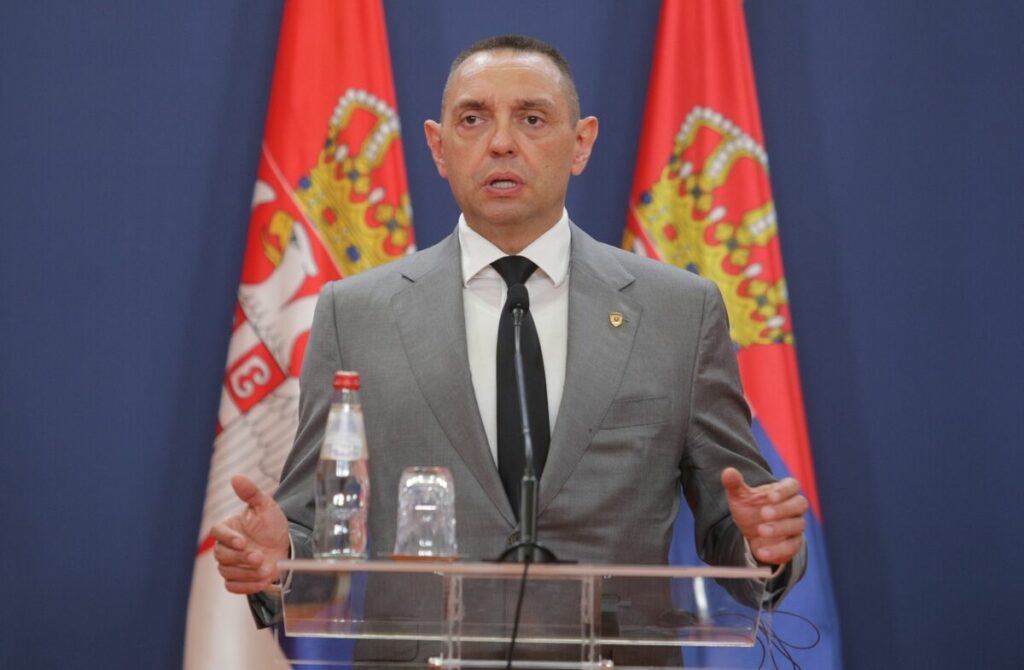
US sanctions Serbian head of secret service
Bloomberg
The US sanctioned Aleksandar Vulin, the director of Serbia’s intelligence service, a close supporter of President Aleksandar Vucic and an influential political figure in Belgrade, amid allegations that he assisted Russia in undermining Balkan stability and facilitated drug and weapons trafficking. According to the US Treasury Department, Vulin also contributed in aiding weapons shipments from a Serbian arms dealer who is already sanctioned by the US. Furthermore, Vulin has been “implicated in transnational organized crime, illegal narcotics operations and misuse of public office,” Washington claimed.
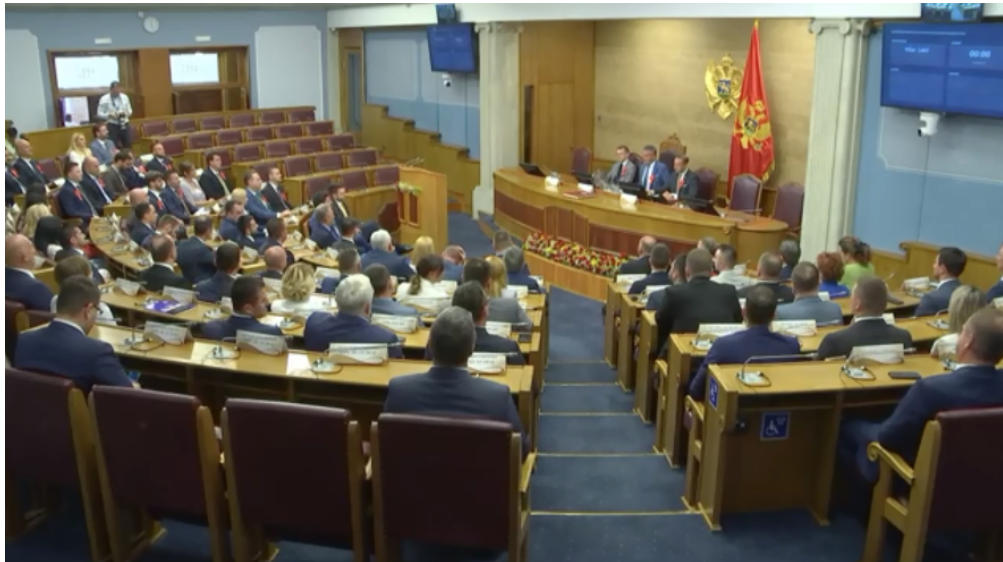
Montenegro inaugurates new Parliament after June elections
Xinhua
Montenegro’s Parliament was inaugurated at the end of July, after the 11th of June elections. However, the election of the speaker was postponed as no candidates were proposed. President Jakov Milatovic’s “Europe Now” movement has 24 MPs out of 81 in the Parliament, while the coalition around the Democratic Party of Socialists won 21 seats. Other political forces include “For the Future of Montenegro” (13 MPs), “Count Bravely” (11 MPs led by former PM Dritan Abazovic), and “For You” (2 MPs). Ethnic minority representatives have a total of 10 mandates. President Milatovic will meet parties and choose a prime minister candidate to form a new government within 90 days.
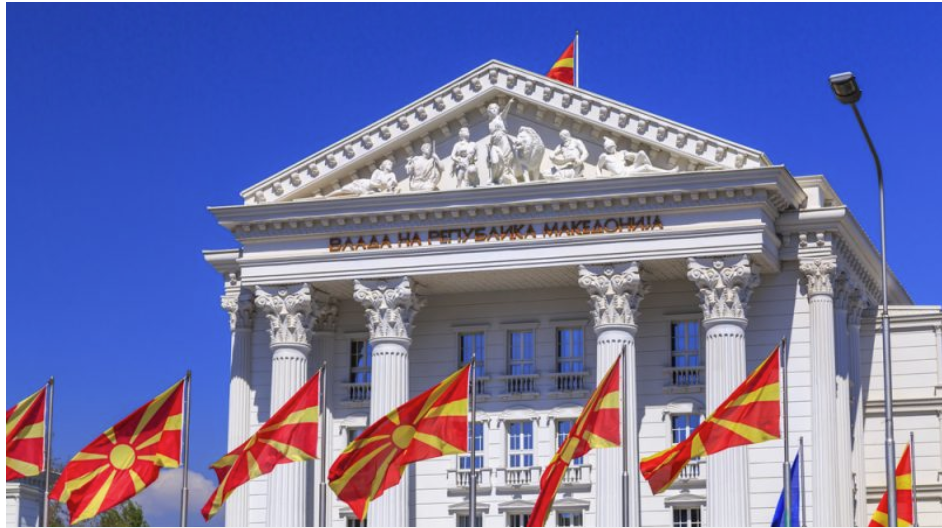
In North Macedonia constitutional changes finally on agenda
Skopje Diem
The North Macedonian Parliament began debating constitutional amendments that could pave the way for accelerating the country’s accession to the EU. Among the modifications on the agenda the most disputed is the expansion of minority rights protection for Bulgarians, as required by Sofia. However, the principal opposition party, VMRO-DPMNE, has already stated that it will vote against the proposed revisions. Skopje risks falling behind Albania in the EU integration process if the constitutional reform is not ratified by the end of the year, the EU warned.
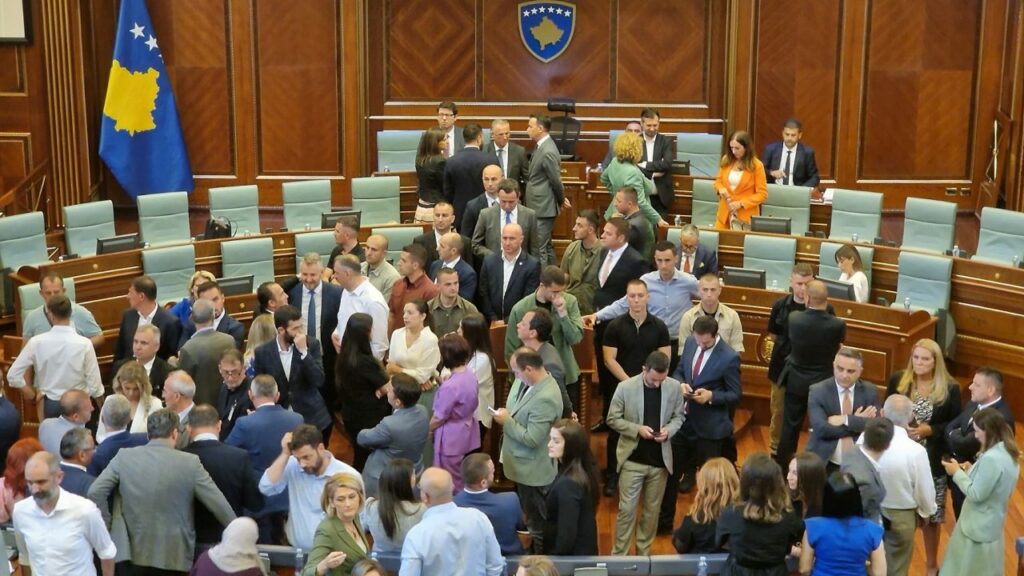
Kosovo announces measures to defuse tensions, brawl in Parliament
Al Jazeera
Albin Kurti, the Prime Minister of Kosovo, announced measures to mitigate tensions with ethnic Serbs in the north, after months of escalating tensions and violent unrests. Kurti stated that he would reduce the number of special police officers stationed in front of four municipal buildings in northern Kosovo’s ethnic Serb-majority regions and conduct new mayoral elections in each of the towns. However, the move has upset the opposition, which argues that Kurti “experimented” for months and jeopardised Kosovo’s international standing before reversing course. During the Prime Minister’s speech, there was a violent brawl in the Parliament. The situation in the north of Kosovo remained calm but tense throughout July.
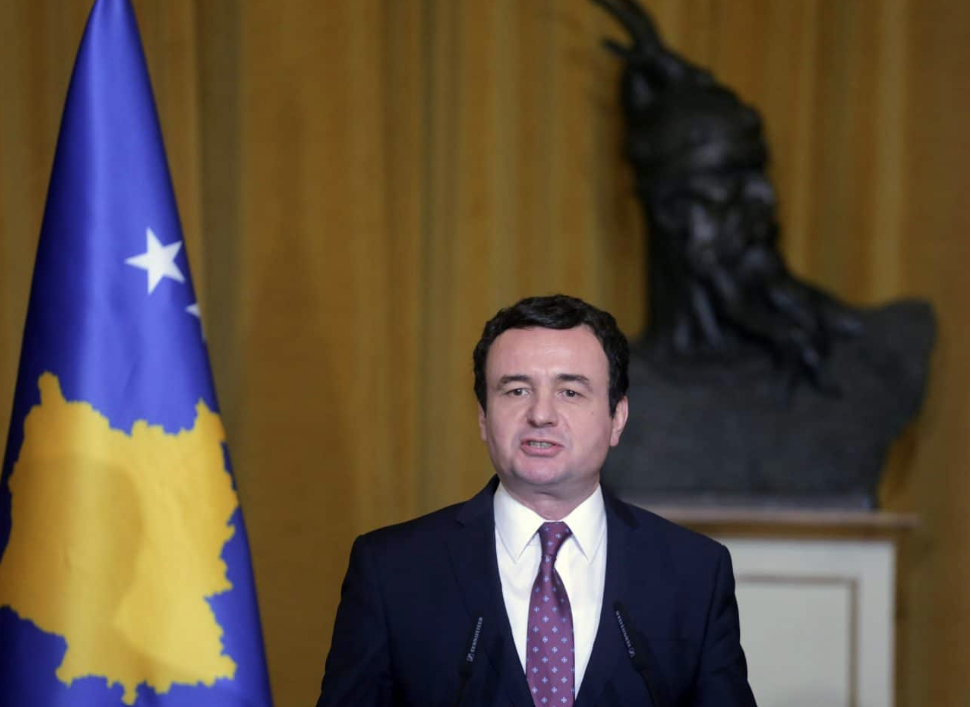
Pristina buys ‘kamikaze drones’ from Turkey, Belgrade concerned
Reuters
Kosovo has purchased a batch of Turkish-made Bayraktar drones, Prime Minister Albin Kurti announced on July 16. The drones are like the ones deployed by Ukraine’s military against Russian forces. “Kosovo is now even safer and always proud,” Kurti said, adding that his administration has increased troop personnel of the Kosovo Security Force by 80% and the defence budget by more than 100% in the last two years. Following the announcements of Kurti, Belgrade accused Pristina of seeking to escalate tensions and establish a regular army with the backing of Turkey and other nations, against the UN resolution 1244. NATO also warned Kosovo that the peacekeeping mission KFOR retained control of the country’s airspace and that Pristina has no right to fly military drones.
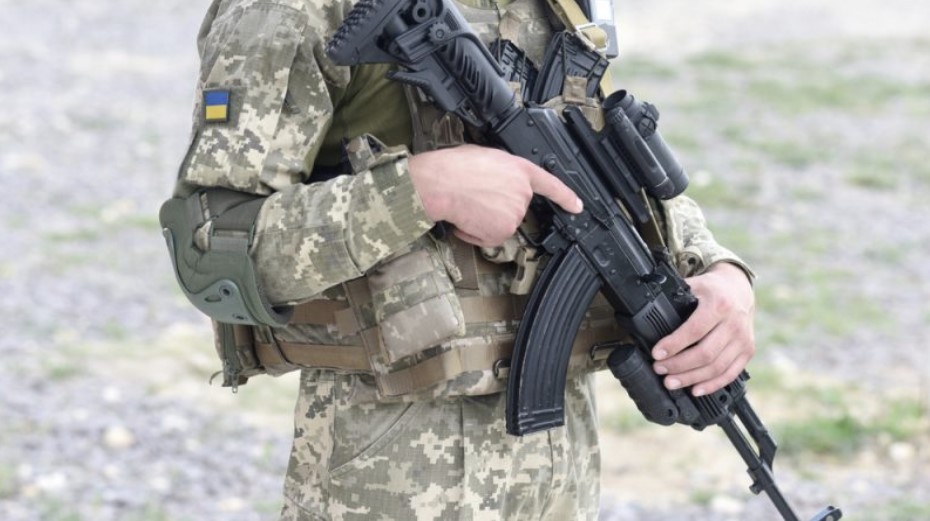
Bulgaria will send heavy military equipment to Ukraine
The Associated Press
Bulgaria has agreed to supply the Ukrainian army with 100 obsolete armoured personnel carriers (APC type BTR-60), reversing the previous stance of not supplying military equipment to Kyiv. The equipment, used for riot control by the Internal Security Troops, needs to be refurbished and possibly an engine upgrade The decision was taken after the election of a new pro-Western government. Previous interim governments appointed by President Rumen Radev rejected direct arms shipments. The government’s plan to transfer heavy military vehicles to Ukraine for the first time since the war began was approved by the Parliament in Sofia by 148 votes to 52.
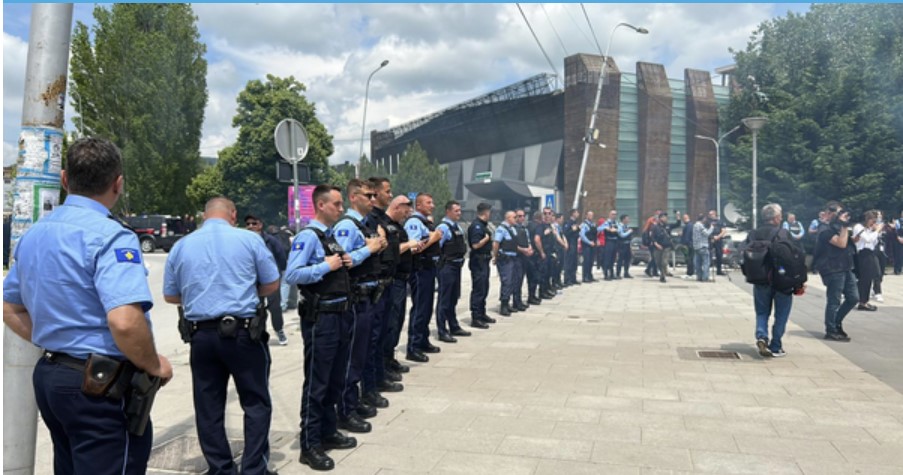
Police officers from the Serbian community receive threats in Kosovo
Prishtina Insight
Kosovo institutions and the international community have expressed strong condemnation over the threats directed at newly appointed members of the Kosovo Police from the Serbian community. In July, 45 new police officers from the Serbian community were integrated into the Kosovo Police in municipalities within the northern region. However, some of them received threatening messages, and there has been an alarming online campaign on various Serbian pages with undertones suggesting violence against the ‘traitors’.
The Insight Angle

Biljana Vankovska
She is a full professor of international relations and peace studies at the Institute for Security Defense and Peace at Ss. Cyril and Methodius University in Skopje (North Macedonia) and the head of the Global Changes Center at the same University. As a pioneering researcher in peace and conflict studies she has made significant contributions to the field since the mid-1990s. Vankovska has established herself as a highly influential columnist and intellectual in the Balkan region over the past three decades. Her research focuses on various areas such as international security, peace and conflict analysis, civil-military relations, transitional justice and Balkan affairs.
In the Balkans we have been witnessing a complete halt in the EU enlargement process in recent years. Even countries like North Macedonia, which went as far as changing its name to expedite own accession, still find themselves on the sidelines, in the North Macedonian case this being largely due to Bulgaria’s opposition. What are the potential dangers posed by these delays in the enlargement process?
Indeed, the Macedonian case becomes paradigmatic due to the country’s ordeals that have nothing to do with the Copenhagen criteria. However, there has been no progress even with the countries such as Serbia and Montenegro, which had begun their accession process long ago. Things in that regard become worse rather than better. In my opinion, the blame cannot be put exclusively on the region’s incapability and failures – after all, the ‘stabilocracies’ are usually supported by Brussels. The key problem is the unwillingness of the EU to open the doors for its less developed and poor neighbours. The consequences are immense: today’s EU is not the same one as the EU of some ten or fifteen years ago. Geopolitical developments have made it shift away its enlargement policy and re-pack it into some sort of loose ‘(geo)political community’. As a result, its soft power vanishes, people got tired and fed up with empty promises, the so-called “Euroscepticism” is on the rise, while the vast amounts of money are now redirected towards the war economy and assistance rather than development and reforms.
Considering the events that unfolded in the subsequent years, do you believe it was worthwhile for North Macedonia to make a deal with Greece to join NATO and move closer to the EU?
First of all, the thesis that the only path that leading to EU membership is the one that goes through NATO has always been phony. As we know, there are EU member-states that are not members of the Alliance (and vice versa). In my view, the best option for all post-conflict/post-war societies in the area of ex-Yugoslavia would have been investment of efforts and human capital in non-military areas, economic growth, social progress, education and reconciliation. Nowadays even the top Macedonian leaders admit that the key reason for the name change deal was NATO rather than EU. They do their best to explain that the country got more security in exchange – but the ordinary people are not blind to the raising military budget and purchases of expensive military equipment, especially now after the Vilnius summit. In other words, if NATO story was sold out as a story of economic wellbeing and development, now it simply does not fit that narrative. Macedonia changed its name and the Constitution – and is now enforced to do it again for the sake of the Bulgarian nationalistic dreams – for nothing, except for being a good albeit weak military ally in the new geopolitical order.
Are you concerned about the possibility of a new wave of instability in the region as unresolved issues like the Serbia-Kosovo dispute and the pro-secessionist actions of Dodik in Bosnia and Herzegovina resurface or intensify?
The frozen conflicts rarely remain so for a longer period of time. The Western political community has been relying on stability (and ‘stabilocracy’) for far too long. But the Dayton Bosnia and Kosovo are the open wounds in the region, not only because their weird political and international position, but also because of their internal contradictions, poverty, corruption and lack of perspective. It sounds like a cliché but the Balkans is still a system of interconnected vessels. Behind the surface of Macedonia’s alleged stability, there is a latent process of internal division – and eventually federalization. The situation in Kosovo is especially important for the internal processes in the Macedonian society.
There are proposals such as those in Germany (CDU-CSU motion/SWF paper) to advocate for the inclusion of the Balkans in the EU single market before full membership. Do you think this could be a viable solution for the region or do you have alternative suggestions? What about initiatives like ‘Open Balkan’? Do they hold any significance or impact?
The German idea is somewhat in contradiction to the French idea of creation of a “second league” – to use a sports terminology – in the political sphere. The Balkans needs clear signals and vision from Brussels – but the EU capital is busy with Ukraine, Moldova, etc. Differently from the dominant (and false) belief that joining the EU economic space and market would immediately bring progress and growth, I am a bit sceptical: one should have a healthy and developed economy to compete in the EU single market. It’s the capitalist logic that is often forgotten. How would economic subjects from Serbia, Montenegro or Macedonia cope with the competition on an equal level with the companies from the developed countries? At a first sight, ‘Open Balkan’ idea looks great: it assumes consolidation, cooperation and even reconciliation among the Balkan states in a way that resembles the EU from its onset (the European Coal and Steel Community, EEC, etc.). Unfortunately, the open issues and the frozen conflicts prevent its full realization, let alone the reluctance that comes from some European capitals. In sum, the region is in a limbo – neither closer to EU, nor able to consolidate internally and work together for the sake of regional and individual interests.
Considering the Russian aggression against Ukraine do you think Moscow has ultimately lost its influence in the Balkans? And what about China?
The alleged Russian interference in the region has been exaggerated by Washington and Brussels. On the other hand, some EU countries, such as Germany, Bulgaria, and Hungary, have maintained relatively high-level relations with Moscow. Over the years, public opinion polls in the Balkans consistently demonstrate unprecedented support for EU membership. The discontinued South Stream project effectively diminished Russian influence in the region, albeit at a significant economic cost for the countries involved. China is also portrayed as an adversarial actor in the emerging geopolitical landscape, which has made the local political arena hesitant to engage in broader cooperation. Western actors have taken a more aggressive stance and pursued their corporate interests at the expense of local economies. For instance, the recent agreement between the Macedonian government and the US-Turkish enterprise Bechtel and Enka has been criticized as scandalous, outrageously expensive, unconstitutional and corrupt. This deal serves as a response to the previous government’s agreement with China on an infrastructure project involving two relatively short highways. During the coloured revolution, the Chinese deal was one of the key points of protest, yet now the same individuals applaud an even more detrimental economic deal with a Western company.
The Key Story
Strategic trends
War getting closer to NATO borders in the Balkans
after Russia hits Danube’s ports

The war in Ukraine got dangerously close to NATO borders in the Balkans in July, increasing the risk of a further escalation in Europe, after Russia used Iranian military drones to bomb harbour facilities at two important river ports on the Danube, few hundred meters from the Romanian border and not far from Moldova, another country that aspires to enter both EU and NATO.
At the end of July, Moscow employed several Iranian Shaheed-136 drones to bomb the Ukrainian ports of Reni and Izmail, on the Danube, demolishing warehouses and grain silos and damaging a cargo ship in Reni, while Izmail, downstream, escaped almost intact. The Romanian border is only over the river, and the Moldovan Danube port of Giurgiulesti is just five kilometres upstream, as is the Romanian city of Galati, which has a population of 220,000 people. It is only by chance that the Shahed drones, which are notoriously inaccurate, did not land on the NATO side of the border, media in Ukraine and Romania warned.
The attack on Reni and Izmail was part of the larger Russian effort to stifle Ukraine’s grain exports. Russia did not extend the so-called Black Sea grain deal last month, which was negotiated by Turkey and the United Nations last year and enabled Ukraine and Russia to transport billions of euros in grain and wheat over the Black Sea. Ukraine accounts for a significant share of the global food supply, including 10% of the global wheat market, 15% of the global corn market, and 13% of the barley market. After leaving the deal, Russia has unleashed attacks on grain supplies on the key Ukrainian port city of Odesa, wiping out 60.000 tons of grain.
Surprisingly, Moscow did not stop there, and decided to hit also the Danube ports, increasingly used by Kyiv to export grain avoiding the most dangerous parts of the Black Sea, the northern areas, since last spring. “To see Russian forces targeting Danube River ports and grain silos, it’s just chilling in the extreme,” said USAID Administrator Samantha Power. USAID and the EU were supporting Ukraine in developing the two Danube’s ports to export cereals abroad in the previous months.
After the attacks on the Danube, Romania – the closest NATO country – reacted with restraint, in order to avoid a further escalation, but fears of an escalation were evident. There was “no direct military threat to the national territory,” Bucharest’s Ministry of Defence stated, noting that “enhanced vigilance” was nonetheless introduced on the border areas with Ukraine. However, Romanian President Klaus Iohannis admitted that the attack on Ukrainian civilian infrastructure on the Danube, “very close to Romania,” poses a “serious security risks in the Black Sea. It also affects the continued transit of grain through Ukraine, and thus global food security.”
NATO reacted more boldly, after having discussed the “serious security situation in the Black Sea region following Russia’s unilateral termination of the Black Sea Grain.” The Alliance condemned “Moscow’s cynical drone attack on the Ukrainian grain storage facility in the Danube port city of Reni, very close to the Romanian border.” Furthermore, NATO countries noted that “Russia’s new warning area in the Black Sea, within Bulgaria’s exclusive economic zone, has created new risks for miscalculation and escalation, as well as serious impediments to freedom of navigation.” “Russia’s actions also pose substantial risks to the stability of the Black Sea region, which is of strategic importance to NATO (…) and we remain ready to defend every inch of Allied territory from any aggression,” NATO Secretary General Jens Stoltenberg said.
The first Russian attack on civilian targets close to NATO’s external border in a region without significant military infrastructure could be just the starting point of a further escalation that might involve Romania, Bulgaria, but also Moldova, with potentially destabilising and dangerous effects on the wider Balkan region and on Europe in general. Nonetheless, Romania assured Ukraine that Bucharest will work on intensifying the transport of Ukrainian grain through Romania and assist in potentiating the cargo traffic on Danube.
Further News and Views
Dodik moves jeopardise Bosnia-Herzegovina’s path towards the EU further at risk
Sources: ANSA, Balkan Insight, Radio Free Europe, Euronews
Milorad Dodik, the President of Bosnia-Herzegovina’s Serb-majority entity Republika Srpska, has increased tensions and instability in the Balkan country in July, pushing for controversial legislation that jeopardises the state’s integrity and civil rights, drawing widespread condemnation from the West. The first piece of legislation, signed by Dodik on the 7th of July, suspended the Bosnian Serb entity’s recognition of the Constitutional Court judgements. A second piece of legislation basically empowered the Bosnian Serb entity to bypass or reject decisions issued by Christian Schmidt, the international envoy to BiH. US Secretary of State Antony Blinken tweeted that Dodik’s signing of a law that rejects the authority of the UN envoy “violates the Bosnia and Herzegovina Constitution and undermines the Dayton Accords.” Furthermore, on July 20, the Bosnian Serb Parliament passed legislation making slander a crime. Critics claim that the action is intended to silence critical voices within the Bosnian Serb entity. The US embassy in Sarajevo cautioned that “those who introduced and supported this repressive legislation have moved the Republika Srpska one step further down the path towards authoritarianism,” adding that the Euro-Atlantic future of the entire country could be jeopardised.
Germany debating the idea of Balkans joining the EU common market before accession
Sources: SWP, Politiko
The opposition CDU-CSU parliamentary group in the German Bundestag, as well as the German Institute for International and Security Studies (SWP), one of Berlin’s leading think tanks, have proposed a new EU enlargement policy that includes offering Western Balkan countries membership in the European Union single market before they fully join the EU. The CDU-CSU paved the way with a motion to ask the German government to work on this new policy, based on the assumption that full enlargement is no longer conceivable. Brussels might instead apply the ‘Norway model’ to the region, extending all of the benefits of the EU single market to the Balkans, particularly the four essential freedoms of movement of goods, persons, services, and capitals. In this way, as said, the six Balkan states still out from the bloc could take advantage of the benefits of EU membership without having decision or veto powers at EU level or their own Commissioners. Given the “visibly intensifying rivalry between the EU on the one hand and Russia and China on the other,” this might be a game-changing tactic, according also to the SWP. SWP emphasised that the process might be done by utilising “the model of opening up the internal market before full membership, as in the cases of Finland, Sweden, and Austria in 1994 during their membership in the European Economic Area.”
EU - NATO
NATO underlines ‘strategic importance’ of the Balkans for the Alliance
Sources: NATO, ECFR, European Western Balkans
The Balkans were again high on the agenda at the NATO summit in Vilnius in July. The leaders of the member countries of the alliance agreed that the region is of “strategic importance for NATO” and assured their engagement in supporting “reforms that advance the respective NATO and EU aspirations of the countries in the region” and to “counter malign influence, including disinformation, hybrid, and cyber threats, posed by both state and non-state actors.” In relation to Bosnia-Herzegovina, NATO said it encourages “domestic reconciliation, and urge political leaders to refrain from divisive and secessionist rhetoric and actions.” Furthermore, leaders in Vilnius noted that “strengthening NATO-Serbia relations would be of benefit to the Alliance, to Serbia, and to the whole region. We look to Serbia to engage with NATO and its neighbours in a constructive manner, including in its public communications on the mutual benefits of NATO-Serbia cooperation.”
ECONOMICS
Illegal Russian money flowing to the Balkans
Sources: Balkan Insight, Global Initiative against Transnational Organized Crime
A new report by the Global Initiative against Transnational Organized Crime (GI-TOC) highlighted the rise of Russian Illicit Financial Flows (IFFs) in the Western Balkans. The phenomenon is facilitated by weak rule of law, organized crime, and a significant size of grey economy. Furthermore, the region’s strategic position as a gateway between Asia and Europe, along with state capture and institutional weaknesses, makes it vulnerable to IFFs, the organization said. Major players like Russia, China, and the UAE exploit this to influence key markets and institutions. With Russia’s war in Ukraine, the danger of illicit finance has increased. Global IFFs are estimated to be worth trillions annually, and in the Western Balkans, it amounts to around 6% of the region’s GDP. Sanctions introduced after Russia invaded Ukraine included freezing around 315 billion of Russian reserves in the Central Bank. Russians avoid sanctions via the Western Balkans “with their combination of state and media capture, simmering ethnic divisions, slow pace of EU accession and the legacy of Russian cognitive bias,” the report said.

Stefano Giantin
Journalist based in the Balkans since 2005, he covers Central- and Eastern Europe for a wide range of media outlets, including the Italian national news agency ANSA, and the dailies La Stampa and Il Piccolo.

